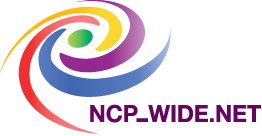Lessons learnt from Bonn workshop 13/14 March 2017, Bonn | Germany
In March 2017, the German Aerospace Center (DLR) Project Management Agency organized within the NCP_WIDE.NET and in cooperation with the NCP Academy a workshop on the Widening package - stock-taking and future orientations in Bonn. The workshop was targeted at the National Contact Points (NCP) of Horizon 2020 dealing with the challenge of widening participation in Horizon 2020 and closing the research and innovation divide.
In light of the major European research and innovation policy instruments the workshop took stock of the experiences with the various programme lines of Widening, in particular Teaming, Twinning and ERA Chairs.
The key messages of the workshop are:
1. The visibility of “widening” is to be enhanced, particularly as to its potential and, as far as already detectable, real contribution to increasing the participation in H2020 and inducing structural change in the national R&I systems.
2. It will take time for the widening instruments to have an effect on closing the innovation divide. One should not change the instruments too early (perhaps with the exception of ERA chairs) in order for the effects to “materialise”.
3. The mid-term evaluation should be used to assess each instrument of the Widening package against the expected impacts assigned to each of them in the H2020 regulation and the work programmes, and actions taken, if necessary, to either alter the expectations or the instrument itself (eligible activities, quality criteria etc.):
- In Twinning proposals, costs for carrying out research activities as a main part of cooperation should also be covered.
- There is consensus among NCP’s that ERA chairs might not be well-placed to induce structural changes in
- a host institution. Structural changes are needed, but are not adequately addressed in the context of ERA chairs; for example, salaries of researchers are not the only factor for an attracting research environment; involving the top management of an RTO/HEI to back-up any reforms or innovative ideas would be a possible solution.
4. RegPot was quite successful, as its ex-post evaluation demonstrated, but has been discontinued; perhaps elements of RegPot could be combined with the current or future widening instruments.
5. The interrelation between the Policy Support Facility (PSF) and Teaming/Twinning should be better addressed.
Role of advanced partners
A greater emphasis should be placed on the communication of benefits for the advanced partners that are taking part in the widening instruments (e.g. access to new markets of knowledge, trade and production).
Relation H2020-ESIF
1. In many EU13 countries ESIF is more attractive than Horizon 2020, which possibly impedes participation in Horizon 2020 (crowding-out effect; negative incentives).
2. The ESIF operational programmes should also feature “Widening” objectives and be targeted at the structural deficits of the national R&I systems, respectively (e.g. incl. interaction with the H2020-PSF).
Mainstreaming
Widening as a cross-cutting issue for the next FP9 should be explored towards an intelligent integration of widening aspects while maintaining the character of H2020 as a programme based on excellence; however, before taking action, the effects of “pilots” for mainstreaming, i.e. MSCA, KIC RIS, NMBP, SC health, COST, should be assessed. Including the geographical balance as an impact criterion or one of the criteria for differentiation in ex-aequo cases is not unchallenged as a proposal.


